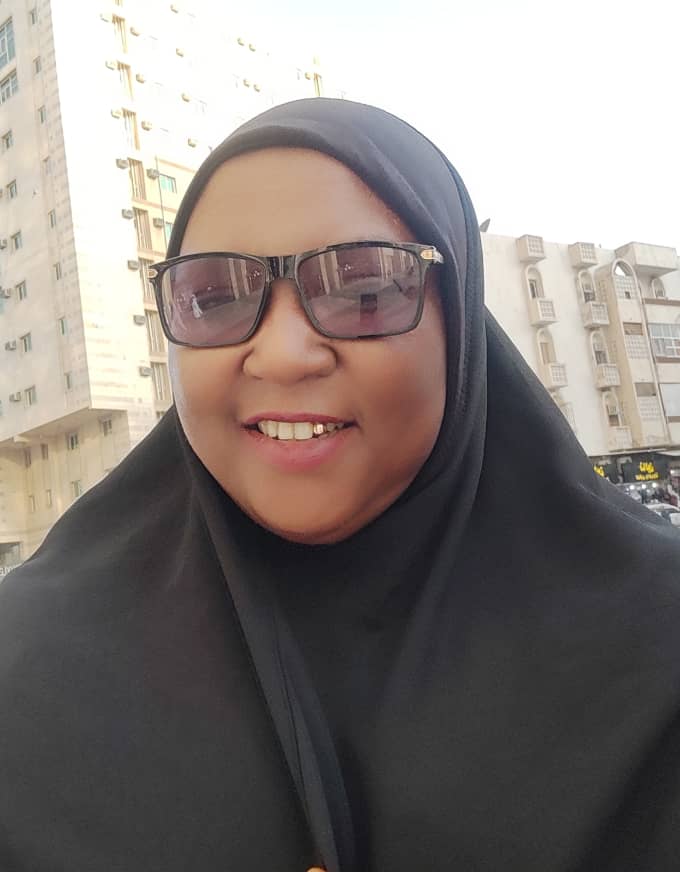Countering Islamaphobia through peace messaging and media literacy, by Dr Hauwa Mohammed Sani
15 March: International Day to Combat Islamophobia
The International Day to Combat Islamophobia raises awareness that terrorism and violent extremism should not be associated with any one religion, nationality, or ethnic group.
Islam is a religion of Peace. “Islam:” originated from the word Salam which means Peace, and the symbolic meaning of Islam means “surrender”, and its central idea is surrendering to the will of God. A Muslim is someone who embraces Islam, the religion of Peace, with guidance from the holy book of Al-Qur’an and the teachings of Prophet Muhammad Peace be upon him. ” Violence and cruelty are not in the spirit of Islam, nor are they found in the life of the Muslims.
Several historical and contemporary issues are central to understanding the roots and growth of perceptions that Islam is inherently violent and hostile to all non-Muslim values. Stereotyping and media-biased flashpoints, such as the history of Islam in contrast to Christianity; Iran; 9-11; Israel and the middle east and Muslims in Europe, and the power of media in perception are some of the roots and facilitators of the creation of Islam and Muslims as intrinsically violent – and, as a result, Islamophobia.
READ ALSO:Why Muslim anger against the West runs deep, by Abdulrazaq Magaji
The UN defines Islamophobia as fear, prejudice and hatred of Muslims that leads to provocation, hostility and intolerance using threatening, harassment, abuse, incitement and intimidation of Muslims and non-Muslims online and offline. Motivated by institutional, ideological, political and religious hostility that transcends into structural and cultural racism, it targets the symbols and markers of being a Muslim.
Diversity is a Richness, Not a Threat:
The holy Quran admonishes that Nations and tribes were created to know one another. It is not so that you stir up conflict and enmity. It is instead to get to know one another and live peacefully together. Differences in language, colour, temperament, manners, talents and abilities do not lead to conflict and strife. Instead, they make for cooperation, so all tasks are fulfilled, and all needs met. Colour, race, language, homeland and similar factors are unimportant in God’s sight.
Humans should avoid ideological trivialisations and respect one another’s creeds and beliefs. The beauty of the human race is said to be buried in its diversity.
In support of an argument against religious intolerance, God in the Holy Quran instructed the prophet to say: “To you your religion and mine is mine”. (Quran 109:6). He also decreed that: Let there be no compulsion in religion. (Quran 2: 256).
Racism, anti-Semitism and Islamophobia are depicted as fruits of the same tree of hate. Therefore, this new racism, horrible insults and hate speech should be combatted in all its ramification. Fighting Islamaphobia is not one-way traffic. There is an urgency for people of all faiths to help publicly address and condemn it and all other forms of intolerance.
Hence there is a need to promote interfaith dialogues which provide opportunities for interactions and negotiations to foster mutual respect, tolerance and understanding of one another’s religion.
Combating Islamaphobia
There are various ways to engage in curtailing Islamaphobia and promoting peace. Religious leaders can employ these efforts or through more collaborative intra- or inter-religious initiatives: Peace messaging and support for freedom of spiritual and religious tolerance and accommodations can combat Islamaphobia through inclusive discourse. These messages can be articulated through leaflets, the media, or religious sermons.
Information is power; hence News literacy is also essential in debunking and pre-bunking misinformation and disinformation online, and offline Islamaphobia and will also be instrumental in debunking myths and conspiracy theories about Islam and Muslims.
Media literacy is the ability to determine what is credible and what is not, identify different types of information, and use authoritative, fact-based information standards as an aspirational measure in deciding what to trust, share, and act on.
Through News Literacy, we can counter misinformation about Islam, set the records straight, and provide pre-bunks. We should all become active participants in the network. This should be a continuous process for continued influence effect because the repeatedly frequent information is more likely to be internalised as the truth.
We should, therefore, actively confront false narratives, demand evidence-based information, and take more time and care when sharing information and portraying the facts about Islam and Muslims. Islam is a Peaceful religion.
Dr Hauwa Sani is a lecturer in the Department of English and Literary Studies
Ahmadu Bello University, Nigeria.
Follow the Neptune Prime channel on WhatsApp:
Do you have breaking news, interview request, opinion, suggestion, or want your event covered? Email us at neptuneprime2233@gmail.com





